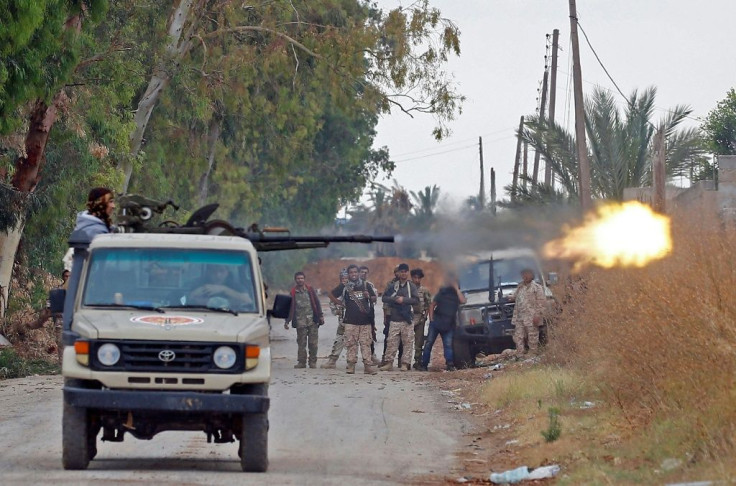Failure Of Libya Talks Endangers December Vote, Analysts Warn
The failure of UN-led talks on Libya to reach a compromise over December elections could endanger a roadmap that had raised hopes of ending a decade of chaos, analysts have warned.
Seventy-five delegates from the war-torn North African country aired their differences at rowdy meetings in Geneva last week.
But despite an extra day of unscheduled talks, they remain divided over when to hold elections, what elections to hold, and on what constitutional grounds -- a blockage that threatens to hurl Libya back into crisis.
"No consensus was reached among the LPDF (Libyan Political Dialogue Forum) members" on the contentious question of a constitutional basis for the previously agreed December 24 polls, the UN acknowledged Saturday.
Oil-rich Libya was plunged into chaos after dictator Moamer Kadhafi was toppled and killed in a 2011 NATO-backed uprising.
Two rival administrations later emerged, backed by a complex patchwork of militias, mercenaries and foreign powers.
While Turkey supported a UN-recognised administration in Tripoli, eastern-based strongman Khalifa Haftar enjoyed backing from the UAE, Egypt and Russia.
Under a UN-backed ceasefire agreed last October, an interim administration was established in March to prepare for presidential and parliamentary polls on December 24.
The UN's Libya mission UNSMIL, in its statement Saturday, warned that "proposals that do not make the elections feasible" on that date "will not be entertained".
But analysts said foreign parties were pushing Libya's rival camps apart.
"The differences which emerged in Geneva were to be expected," said Khaled al-Montasser, professor of international relations at the University of Tripoli.
He identified three tendencies.

"A first group called for elections to be postponed to next year, a second only wants parliamentary elections and a third remains committed to the roadmap" which envisions both legislative and presidential polls.
The LPDF members were supposed to have agreed by July 1 on the constitutional basis for parliament to adopt an election law.
"We had a consensus on a draft text... but right from the start of the (Geneva) meetings, it was brought into question by certain members who made new proposals," one delegate told AFP, asking not to be identified.
They tried to "evade their commitment to holding elections" on schedule, he said.
But Jalal al-Fitouri, a law professor, said the divisions were "orchestrated in advance".
"It's not a secret to anyone that the (foreign) states monopolising the Libya file... put pressure on those who represented them within the LPDF in Geneva," he said.
"Each state supports a particular side and has a position on how to hold the vote and on conditions for candidacy."
By manipulating the process, foreign players are hoping to ensure their favourites come to power and can represent their interests in Libya's lucrative post-war reconstruction, he added.
Since last year's ceasefire, the security situation in Libya has slowly improved.
But progress has stalled, notably on another key prerequisite for the polls -- the withdrawal of all foreign forces.
The United Nations has estimated that 20,000 foreign forces including Russian mercenaries are still on Libyan territory.
Turkey refuses to withdraw its military, saying its presence is based on an agreement with the previous unity government in Tripoli.
© Copyright AFP {{Year}}. All rights reserved.





















